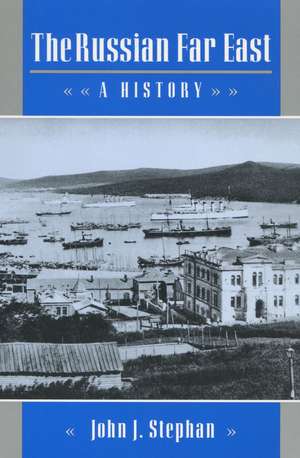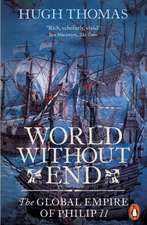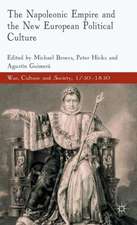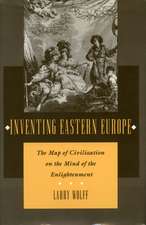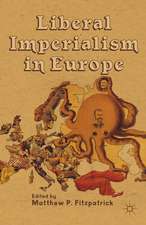The Russian Far East: A History
Autor John Stephanen Limba Engleză Paperback – 30 apr 1996
Wedged between China, Korea, Japan, and the United States, the Russian Far East has for centuries been a meeting ground for Eurasian and American peoples and cultures. Conventionally regarded as perimeter, it is in fact a collage of overlapping borderlands with a distinct historical identity. Based on a quarter-century of research by a leading authority on the area, this is a monumental survey of Pacific Siberia from prehistoric times to the present.
Drawing from political, diplomatic, economic, geographical, social, and cultural evidence, the book reveals that this vast, rugged, and supposedly insular land has harbored vibrantly cosmopolitan lifestyles. For over a millennium, Chinese culture found expression in Tungus, Mongol, and Korean polities. Russian penetration in the seventeenth century eventually turned the region into a colony sustained by state subsidies, foreign enterprise, and a mosaic of Ukrainian, Estonian, Finnish, German, Chinese, Korean, and Japanese communities. Tsarists and Soviet penal policies contributed to the diversity and volatility of Far Eastern society. Regional aspirations articulated by Siberian intellectuals, disingenuously institutionalized in a Far Eastern Republic (1920-22), survived lethal bouts of economic and demographic engineering to come to life again in the post-Soviet era.
The Russian Far East today reverberates with autonomist rhetoric, but if the region is no longer an appanage, it is still far short of independence. For the time being, the robust tradition of cosmopolitanism is reinventing itself under the banner of capitalism. Reexamining twentieth-century history through a Far Eastern prism, the book offers fresh and often provocative perspectives on imperial rivalries, colonialism, revolution, civil war, and utopianism gone awry in Northeast Asia.
Drawing from political, diplomatic, economic, geographical, social, and cultural evidence, the book reveals that this vast, rugged, and supposedly insular land has harbored vibrantly cosmopolitan lifestyles. For over a millennium, Chinese culture found expression in Tungus, Mongol, and Korean polities. Russian penetration in the seventeenth century eventually turned the region into a colony sustained by state subsidies, foreign enterprise, and a mosaic of Ukrainian, Estonian, Finnish, German, Chinese, Korean, and Japanese communities. Tsarists and Soviet penal policies contributed to the diversity and volatility of Far Eastern society. Regional aspirations articulated by Siberian intellectuals, disingenuously institutionalized in a Far Eastern Republic (1920-22), survived lethal bouts of economic and demographic engineering to come to life again in the post-Soviet era.
The Russian Far East today reverberates with autonomist rhetoric, but if the region is no longer an appanage, it is still far short of independence. For the time being, the robust tradition of cosmopolitanism is reinventing itself under the banner of capitalism. Reexamining twentieth-century history through a Far Eastern prism, the book offers fresh and often provocative perspectives on imperial rivalries, colonialism, revolution, civil war, and utopianism gone awry in Northeast Asia.
Preț: 265.67 lei
Nou
Puncte Express: 399
Preț estimativ în valută:
50.84€ • 55.21$ • 42.71£
50.84€ • 55.21$ • 42.71£
Carte disponibilă
Livrare economică 01-15 aprilie
Preluare comenzi: 021 569.72.76
Specificații
ISBN-13: 9780804727013
ISBN-10: 0804727015
Pagini: 508
Dimensiuni: 152 x 229 x 28 mm
Greutate: 0.85 kg
Ediția:1
Editura: Stanford University Press
Colecția Stanford University Press
ISBN-10: 0804727015
Pagini: 508
Dimensiuni: 152 x 229 x 28 mm
Greutate: 0.85 kg
Ediția:1
Editura: Stanford University Press
Colecția Stanford University Press
Recenzii
"A coherent, literate, and always informed comprehensive history of the region that presents the Russian Far East as both more vibrant and cosmopolitan than the conventional picture. . . . Stephan has produced that rarest of academic monographs: a consistently reliable synthesis that is fun to read. . . . It should be a standard English-language reference tool on the Russian Far East for years to come."—International History Review
"Stephan covers the geography, ethnology, and early history of the region, but concentrates on the period since Russian annexation in the 1860s. The author describes a uniquely cosmopolitan part of the empire, the travails of the revolutionary and civil war periods, and the emergence of strong local communist leaders. Stalin's terror, which destroyed the local leadership as well as brought new fame to the region in the penal institutions, is perhaps the most vividly portrayed period in the book. Altogether, this is a most impressive tour de force. Stephan's work is readable, and he has strong opinions, humor, and an analytic focus as well."
Choice
Choice
"Stephan has emerged as the foremost authority on Northeast Asian political history. The Russian Far East, the first general treatment of the region in any language, provides extensive, accurate, and unbiased information in highly readable form."
Far Eastern Economic Review
Far Eastern Economic Review
Notă biografică
John J. Stephan is Professor of History at the University of Hawaii at Manoa. He is the author of histories of Sakhalin and the Kurile Islands, among other books.
Textul de pe ultima copertă
“A coherent, literate, and always informed comprehensive history of the region that presents the Russian Far East as both more vibrant and cosmopolitan than the conventional picture. . . . Stephan has produced that rarest of academic monographs: a consistently reliable synthesis that is fun to read. . . . It should be a standard English-language reference tool on the Russian Far East for years to come.”—International History Review
Descriere
Based on a quarter-century of research by a leading authority on the area, this is a monumental survey from prehistoric times to the present. Drawing from political, diplomatic, economic, geographical, social, and cultural evidence, the book reveals that this vast, rugged, and supposedly insular land has harbored vibrantly cosmopolitan lifestyles.
